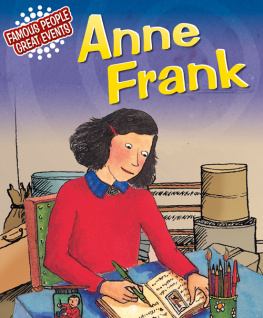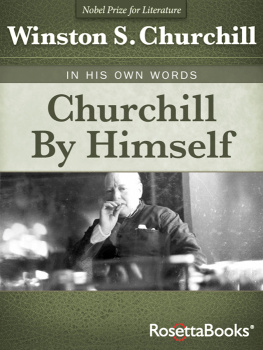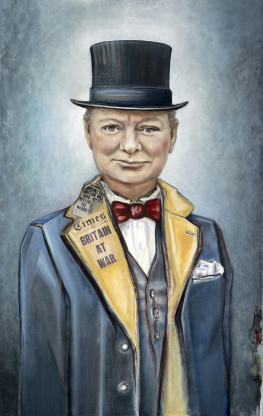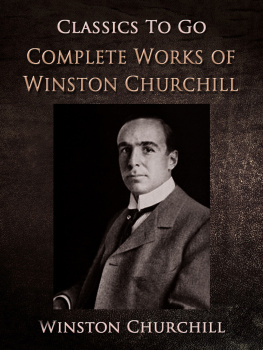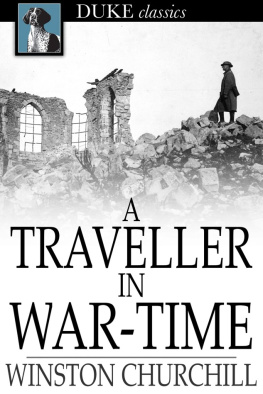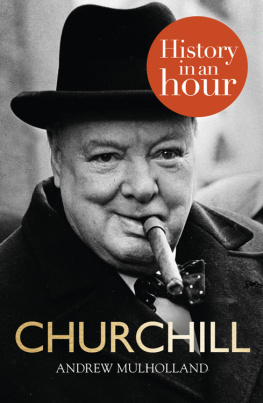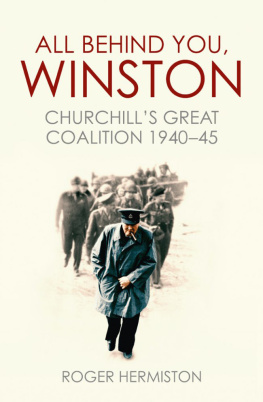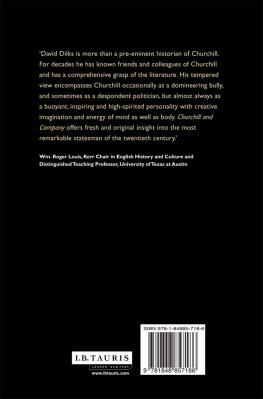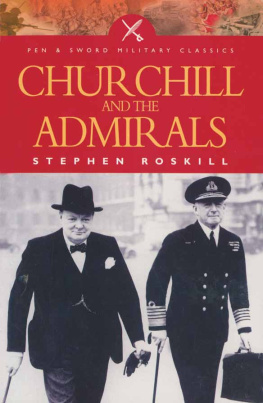
In memory of my grandfather,
Leslie Watson, who served in North Africa and my
great-uncle, John Davies, who served in the Middle East
during World War II.
Contents
1
War in Africa
Boom! Bang! The explosions were terrifying. Enemy soldiers, hidden in the hills beside the railway track, were firing on the train with rifles and big field guns.
Its an ambush! yelled Captain Haldane from his wagon. Driver go faster!
The train full of British soldiers in open-topped armoured trucks raced ahead. It was crossing Natal, a British-held area in South Africa. The year was 1899 and a bloody war was raging between the British and the Boers Dutch-speaking settlers who had lived in South Africa for several generations.
The railway track led downhill. Helped by the slope, the train was now going very fast. In one of the rear trucks, a newspaper war reporter stood among the soldiers. He turned to Captain Haldane. Were going too fast, arent we? Its unsafe. Should I climb along to the engine and tell the driver to slow down?
Before Haldane could reply, there was an enormous bang and jolt from the front of the train. Everyone in the truck was thrown to the floor.
The newspaper reporter was the first to scramble to his feet. Quickly he climbed up to look over the side of the truck. The train was now at the bottom of the hill. On the grassy slopes above, he could see enemy soldiers running closer. The next moment heavy rifle-fire began whistling through the air and clanging against the steel-plated sides of the train.
Were sitting ducks! exclaimed the reporter, jumping back down. He turned to the army captain. Im at your service, Haldane.
Captain Haldane knew this man: though he was a war reporter, hed been trained as a soldier. He and Haldane had been stationed together in India and Haldane trusted him completely.
Find out whats happened to the front of the train, said Haldane. See if you can clear the line. Ill organise the men at the back here to return fire.
The reporter obeyed immediately. He pushed his way out of the truck and ran down the length of the train. Bullets screeched overhead. He found the engine still on the line. But in front of it, two trucks had been derailed and were lying across the track. Ahead of them, another truck had flipped over completely. Some of the men whod been riding on it were obviously dead; others were badly injured.
The reporter checked the track. The reason for the crash was clear: the Boers had put a rock on the line.
Im getting out of here!
The reporter whipped round to see who had spoken.
Im a civilian! What am I paid for? To be blown to bits? It was the driver, staggering from the engine, his face streaming with blood where a piece of shrapnel had hit him.
If we lose him were doomed, thought the reporter. Hes the only man who knows how to drive the train.
As the driver stumbled past, the reporter caught him by the elbow. Think no ones ever hit twice on the same day, are they? he said. Do your duty now and youll get a medal for gallantry you may never get the chance of one again!
The driver stared. Who was this man? Not an army commander he was dressed like a civilian. Yet here he was, taking charge. He looked young only in his twenties. But, as the shells detonated around them, all the driver could see in his bright blue eyes was rock-steady determination and something almost like delight.
Suddenly the driver felt more confident. He wiped the blood from his face with his sleeve and headed back for the engine cab.
Good man! the reporter called after him. Ill stick with you!
Under a hail of fire, the reporter ran towards some soldiers sheltering behind their wrecked truck. I need twenty volunteers, he said calmly, to help me get these trucks out of the way of the engine.
For the next hour the reporter took charge, directing the operation as the soldiers tried to push the immensely heavy wrecked trucks off the track, helped by the engine shunting to and fro. There were hold-ups and problems. Many soldiers were wounded and some were killed.
At last, the engine managed to push past the trucks that were blocking the line. The reporter ran to ask Captain Haldane for permission to evacuate the wounded. Then he and the driver hauled more than twenty bleeding men onto the engine and tender. When they had finished the space was so crammed that there was barely room for the two of them to climb onto the footplate.
Then the engine started off, heading for the safety of the nearest British-held station. But after half a mile, the reporter jumped down and began walking back the way they had come.
Where are you going? yelled the driver.
Back to help the others! the reporter replied.
Hes worth fifty soldiers, that one, muttered the driver, shaking his head in amazement. Do you know his name? he asked the nearest wounded man.
The soldier managed a grin. Churchill. Winston Churchill. Then he spotted something lying on a ledge above the firebox. God help him look. Hes left his pistol behind.
2
Prisoner of War
Another letter from that British man Churchill, sir. A Boer soldier handed the paper to his commanding officer, General Joubert. Says that since hes only a newspaper reporter, he shouldnt be held as a prisoner of war.
After stepping off the engine, Churchill had gone back along the railway track only to be confronted by Boer fighters aiming their rifles at him. He reached for his pistol, but found he was completely unarmed. There was no choice but to surrender. Marched back to the place of the derailment by his captors, he saw that Captain Haldane and his troops had been taken prisoner too. Now they were all imprisoned in camps in a Boer-controlled area of South Africa called the Transvaal.
General Joubert scanned the letter and shook his head. Only a newspaper reporter? I dont believe anything of the kind. Hes dangerous. And the British newspapers are making him out to be a hero. No, he must not be released until the end of the war whenever that comes.
And so, in November 1899, Churchill spent his 25th birthday as a prisoner. He could not bear being cooped up; he could not bear that the exciting events of the war were going on without him. Above all, he could not bear the thought that time was ticking away. His father, Lord Randolph Churchill, had died at the age of forty-five. Winston was convinced that he would die young too. His burning desire was to be famous and to achieve great things, but he feared there was not much time left.
Daring and desperately impatient, Churchill soon escaped from the prisoner-of-war camp. The escape had been planned with Captain Haldane and another British officer but, in the event, only Churchill managed to get over the wall.
Without his friends, Churchills situation looked hopeless. He was deep in enemy territory with no compass Haldane was to have brought that and no map. All he had were the clothes he stood up in, 75, and four slabs of chocolate. Before him lay a three-hundred-mile walk to safety.
During the next nine days, Churchill experienced hunger, exhaustion and, at his lowest moments, despair. The Boers were scouring the countryside for him. They had put up Wanted posters, offering a reward to anyone who handed him in, dead or alive. But at last aided by some British miners who helped him hide down their mine and then in the wagon of a goods train Churchill made it out of Boer-held territory. He could have boarded a boat for Britain and safety, but instead he decided to go straight back to the front line.
Next page

